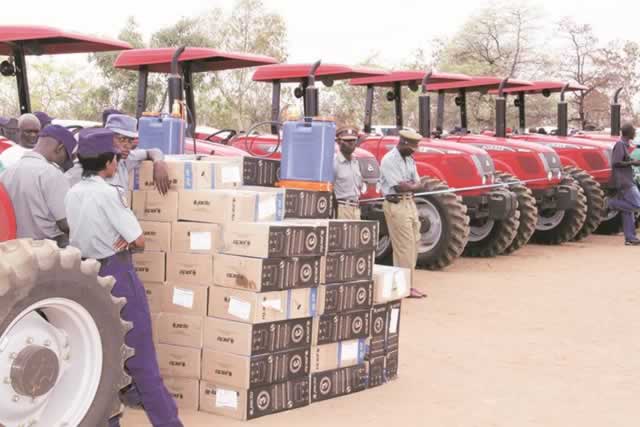Joy for Burma Valley cigar wrapper growers

Samuel Kadungure Mutare Bureau
TOBACCO Industry and Marketing Board (TIMB) yesterday held mop-up sales for cigar wrapper tobacco, which is grown in Manicaland, with the quality leaf fetching as much as $6 per kilogramme. The 2017 cigar wrapper marketing season opened in April.
The auctions were held at Mapeto Farm in Burma Valley. Cigar wrapper growers were left smiling all the way to the bank as the buyers paid handsomely, with the highest price of $6 for high quality leaf.
The minimum price offered was 75 cents per kilogramme. The buyers were also offering an average price of $3 per/kg for burley, which is way above the average international price of $1,80.
TIMB spokesperson, Mr Sheunesu Moyo, said they only held three sales for cigar wrapper this season as the international buyers waited for volumes to accrue.
“The quality was good, and the prices were as high as $6 per/kg for the quality leaf and the minimum price at the close of the mop-up sales was 75 cents,” said Mr Moyo.
Mr Moyo said TIMB would continue partnering foreign investors and cigar wrapper growers to ensure that the crop production reach its full potential. TIMB is currently partnering German Company, Von Eiken.
The company was impressed by the quality of the 2016 /2017 crop. This created demand, which will see an increase in the number of growers and hectarage next season.
“This was a pilot project that was started three years ago and we are proceeding into the 2017/ 2018 season with a view to increase both the number of growers and hectarage.
“The buyers were really impressed by the high sugar and nicotine content and those farmers around Burma Valley wishing to grow cigar wrapper tobacco should register with the TIMB offices in Rusape.
“They will get seed for free from the Tobacco Research Board,” said Mr Moyo. Cigar wrapper production has given farmers in Burma Valley an alternative cash crop that replaced the air-cured burley, which the area was once revered for.
The majority of the growers are smallholder farmers. Mr Moyo said apart from the high prices offered at the auction floors, cigar wrapper tobacco growers will also benefit from the five percent export incentive.
Like other exporters, tobacco farmers who delivered their crop starting from March 30, 2016 are entitled to a five percent export bonus.
The Reserve Bank of Zimbabwe came up with a five percent incentive for tobacco growers to promote production of the export crop.
The incentive is funded through bond notes, a legal tender that was introduced end of last month, which trades at 1:1 with the green back, being deposited into the accounts of eligible farmers after reconciliation by TIMB.
The production of cigar wrapper tobacco in Burma Valley was mooted three seasons ago, thanks to Von Eiken after burley tobacco production stopped due to high costs of production coupled with unfavourable climatic conditions.
The number of cigar wrapper tobacco growers in the area have increased from last year’s 14 to 27 this year. Last season, 10 154 kg of cigar wrapper tobacco was sold, with farmers earning $422 629, 25 at an average price of $2,23 per kg.
Mr Moyo could not say how much was sold this year at the time of going to print.
The cigar wrapper tobacco was sold through decentralised contract sales conducted at the farm. Classification and arbitration of these sales are done by appropriately-trained TIMB personnel from their office in Rusape.
After the farmers have produced the leaf, they grade and “iron” it. It is delivered to the market, where the merchants stake the tobacco and continuously turn the stakes in a fermentation process that takes about eight months before it is properly matured and exported.
Leaves that do not meet the standard for cigars can also be used to make dark-haired cured cigarettes, dark air-cured rollers while “greens” can be used to blend, although in very small percentages.
Like Virginia, cigar wrapper tobacco does well in sandy loam soils, where most grain crops would require a lot of fertilisers and is not a threat to the production of cereal crops.







Comments